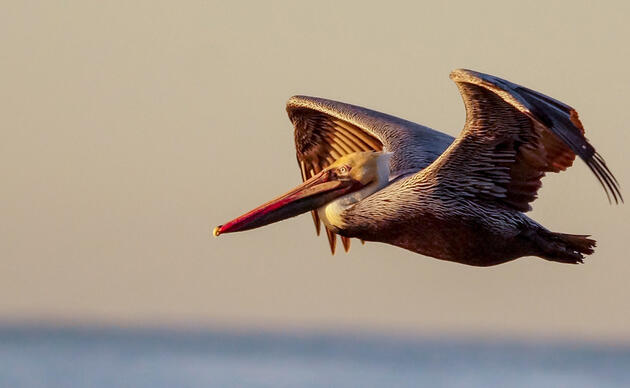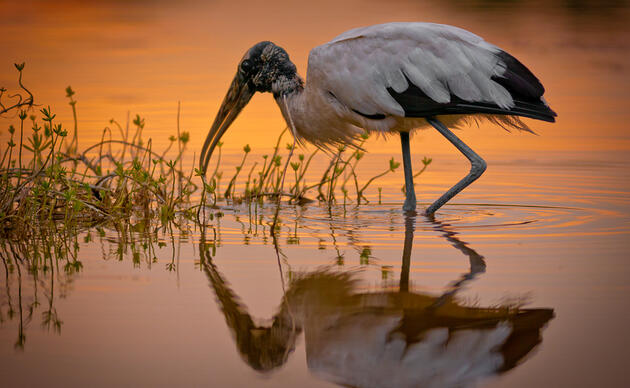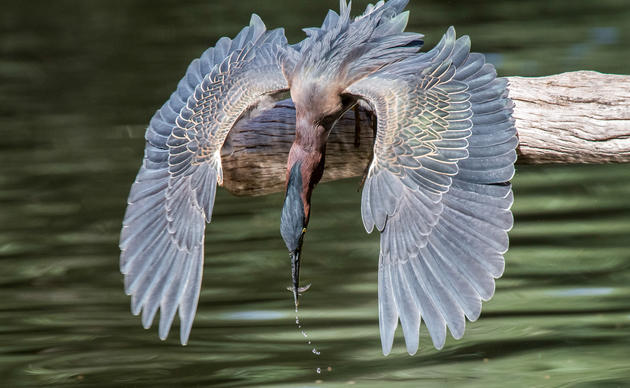At Audubon, we know that where birds thrive, people prosper. In South Carolina, birds thrive in our coastal marshes and beaches, as they are some of the most productive ecosystems in the world. It’s no wonder that wildlife viewing, fishing and hunting in the state accounts for approximately $1.62 billion annually while employing about 32,000 people (Willis & Straka, 2016). Although it is economically important to our state and the well-being of many of our residents, we continue to see the negative effects of coastal development upon these world-class habitats and the bird species that rely on them. Thankfully, the success of our stewardship program can help ensure the protection of our coastal birds for years to come.
Audubon South Carolina relies heavily on the hard work of our volunteers. During the spring and summer, we are particularly grateful for the success of our Shorebird Steward program. These volunteers spend two or three hour shifts on the beach, educating beachgoers about the importance of keeping their distance from nesting and resting coastal birds. Stewards will often be spotted wearing a bright yellow vest featuring “Shorebird Steward” on the back that encourages people to question them about what birds are present on the beach or why certain areas of the beach are roped off. Because stewards are educators, not enforcers, they are able to build a positive rapport with beachgoers. This positivity allows for open communication and a better understanding of our responsibility in protecting these birds.
In an Audubon study published in Conservation Biology, active stewardship programs like ours were shown to positively impact the coastal populations of four threatened bird species, as compared to areas that did not have stewards. Our stewardship programs work in tandem with other coastal bird conservation partners like the South Carolina Department of Natural Resources (SCDNR), the U.S. Fish and Wildlife Service (USFWS), and SC State Parks who are in charge of sign posting throughout the state. Together we’re making a major positive impact for coastal bird conservation.
Notable positive impacts this 2021 season include protection at stewardship sites like Lighthouse Inlet Heritage Preserve, an area where the state threatened Least Tern have not successfully nested in the past, but have hatched several chicks this summer. At Kiawah and Seabrook Islands, endangered Red Knot were seen roosting and foraging by the thousands in April and May because of Audubon trained Shorebird Stewards. Wilson’s Plovers, another state threatened bird, are nesting at all of our nine stewardship sites along the coast. In fact, Lighthouse Inlet Heritage Preserve is home to the most Wilson's chicks recorded in that area this season! The development of new stewardship sites, like Pritchard’s Island (aka Bull Point), was possible because our partners and trained stewards noticed a colony of Least Tern nesting there. These accomplishments, while reflected in the success of the birds, are coupled with the powerful information stewards share with beachgoers.
For example, over the busy 2021 Memorial Day weekend, Audubon staff and volunteer Shorebird Stewards, alongside partners from SCDNR and USFWS, interacted with 716 people visiting areas where coastal birds are nesting. Of these interactions, 98% were reported as positive. With about 300 volunteer hours served during that holiday weekend, the span of this stewardship work touched the lives of many and undoubtedly protected the lives of our feathery friends with whom we share our shores.
As the pandemic wanes and we all begin the summer season relaxing on the beach, be on the lookout for Shorebird Stewards! These dedicated folks are here to answer questions about the vulnerability of our coastal bird populations and how we can all take responsibility in sharing the shore. Want to become a Shorebird Steward? Head to our Coasts page to get started.






